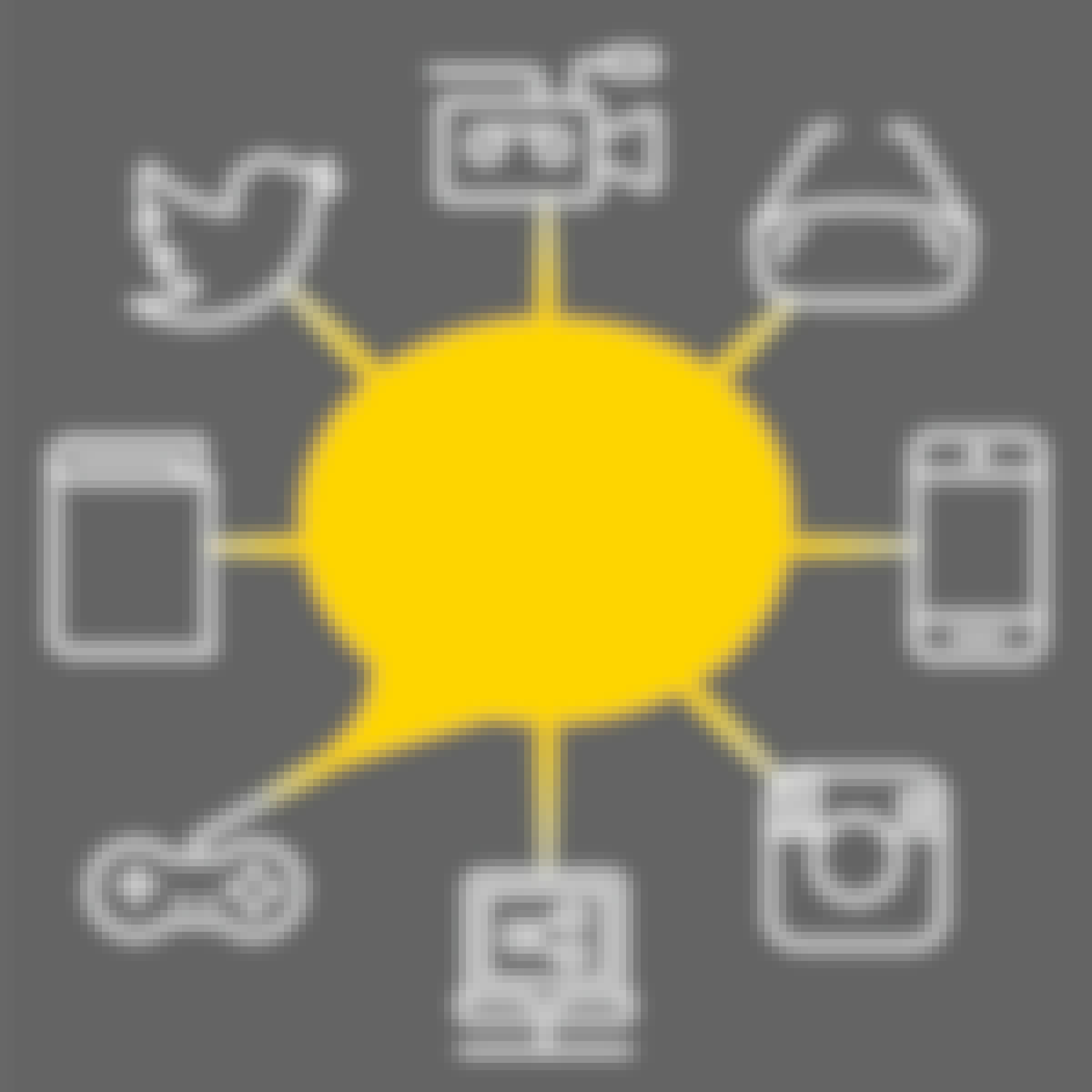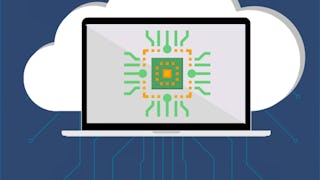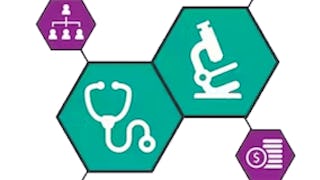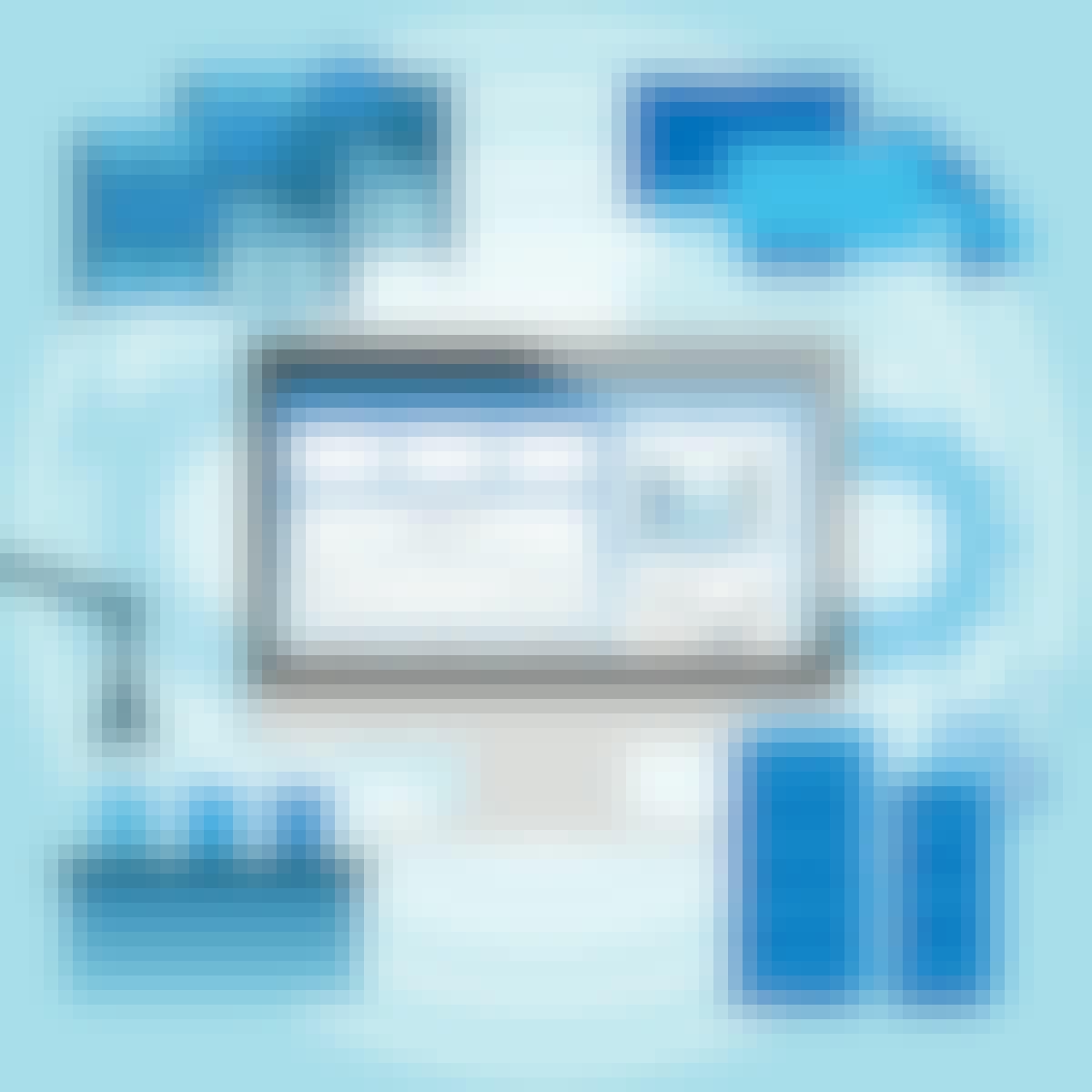Filter by
SubjectRequired
LanguageRequired
The language used throughout the course, in both instruction and assessments.
Learning ProductRequired
LevelRequired
DurationRequired
SkillsRequired
SubtitlesRequired
EducatorRequired
Explore the Healthcare Technology Course Catalog

UNSW Sydney (The University of New South Wales)
Skills you'll gain: Storytelling, User Experience Design, Content Creation, Storyboarding, Multimedia, Animation and Game Design, Augmented and Virtual Reality (AR/VR), Design Research, Creativity, Emerging Technologies, Qualitative Research
 Status: Free Trial
Status: Free TrialDuke University
Skills you'll gain: Technical Communication, Cloud Infrastructure, MLOps (Machine Learning Operations), Cloud-Native Computing, Cloud Applications, CI/CD, Cloud Development, Cloud Platforms, Cloud Computing, Application Deployment, Agile Software Development, DevOps, Software Engineering, Infrastructure As A Service (IaaS), Distributed Computing, Continuous Delivery, Applied Machine Learning, Cloud Storage, Extract, Transform, Load, Google Cloud Platform
 Status: Free Trial
Status: Free TrialUniversity of Minnesota
Skills you'll gain: Technology Strategies, Change Management, Enterprise Architecture, Information Technology, Portfolio Management, Governance, Investment Management, Resource Allocation, Return On Investment, User Acceptance Testing (UAT), Cost Benefit Analysis, Risk Management, Decision Making

University of Colorado System
Skills you'll gain: Performance Management, Mentorship, Budget Management, Team Management, Project Accounting, People Management, Leadership and Management, Recruitment, Leadership, Professional Development, Coaching, Compliance Management, Goal Setting

Kennesaw State University
Skills you'll gain: Value Propositions, Business Modeling, Presentations, Customer Analysis, Innovation, Business Process, Customer Relationship Management, Entrepreneurship, Target Market, Marketing Channel, Business Strategy, Strategic Partnership, Cost Management, Revenue Management, Resource Management

The Hong Kong University of Science and Technology
Skills you'll gain: Preventative Care, Pharmacology, Public Health and Disease Prevention, Health Assessment, Chronic Diseases, Geriatrics, Nutrition and Diet, Biology, Stress Management

Amazon Web Services
Skills you'll gain: Descriptive Analytics, Analytics, Data Analysis, Dashboard, Data Literacy, AWS Identity and Access Management (IAM), Data Visualization, Amazon Web Services, Big Data, Amazon S3, Business Intelligence, Cloud Computing
 Status: Free Trial
Status: Free TrialLearnKartS
Skills you'll gain: Cloud Security, Penetration Testing, Distributed Denial-Of-Service (DDoS) Attacks, Network Security, Malware Protection, Cybersecurity, Threat Modeling, Cloud Computing, Mobile Security, Cyber Security Assessment, Cyber Attacks, Security Testing, Cloud Services, Threat Detection, Cloud Infrastructure, Information Systems Security, Intrusion Detection and Prevention, Cyber Threat Intelligence, Firewall, Incident Response

Georgia Institute of Technology
Skills you'll gain: Game Theory, Combinatorics, Mathematical Theory & Analysis, Computational Logic, Mathematical Modeling
 Status: Free Trial
Status: Free TrialUniversity of California, Irvine
Skills you'll gain: Supply Chain Planning, Demand Planning, Customer Demand Planning, Inventory Management System, Inventory Control, Supply Chain Management, Capacity Planning, Materials Management, Process Optimization, Forecasting, Operations Management, Resource Allocation, Service Level, Capacity Management, Performance Measurement, Microsoft Excel, Data-Driven Decision-Making, Statistical Methods, Cost Reduction, Simulation and Simulation Software
 Status: Free Trial
Status: Free TrialSkills you'll gain: NoSQL, MongoDB, Databases, Apache Cassandra, Distributed Computing, Database Management, Database Architecture and Administration, IBM Cloud, Query Languages, Data Modeling, JSON, Scalability, Data Manipulation
 Status: Free Trial
Status: Free TrialUniversity of Colorado System
Skills you'll gain: Data Encryption Standard, Public Key Infrastructure, Cryptography, Cybersecurity, Public Key Cryptography Standards (PKCS), Key Management, Advanced Encryption Standard (AES), Encryption, Authentications, Arithmetic, Algorithms, Applied Mathematics, Data Integrity, Probability, Computer Science
Healthcare Technology learners also search
In summary, here are 10 of our most popular healthcare technology courses
- Transmedia Storytelling: Narrative worlds, emerging technologies, and global audiences: UNSW Sydney (The University of New South Wales)
- Building Cloud Computing Solutions at Scale: Duke University
- IS/IT Governance: University of Minnesota
- Researcher Management and Leadership Training: University of Colorado System
- Business Model Canvas: A Tool for Entrepreneurs and Innovators (Project-Centered Course): Kennesaw State University
- Health Concepts in Chinese Medicine: The Hong Kong University of Science and Technology
- Getting Started with Data Analytics on AWS: Amazon Web Services
- Certified Ethical Hacking (v12): LearnKartS
- Games without Chance: Combinatorial Game Theory : Georgia Institute of Technology
- Leverage Data Science for a More Agile Supply Chain: University of California, Irvine










